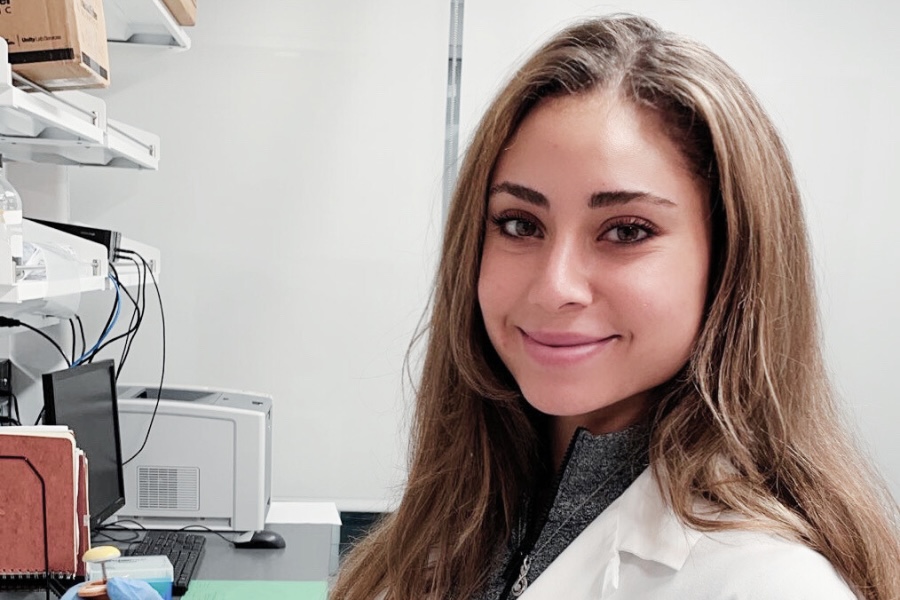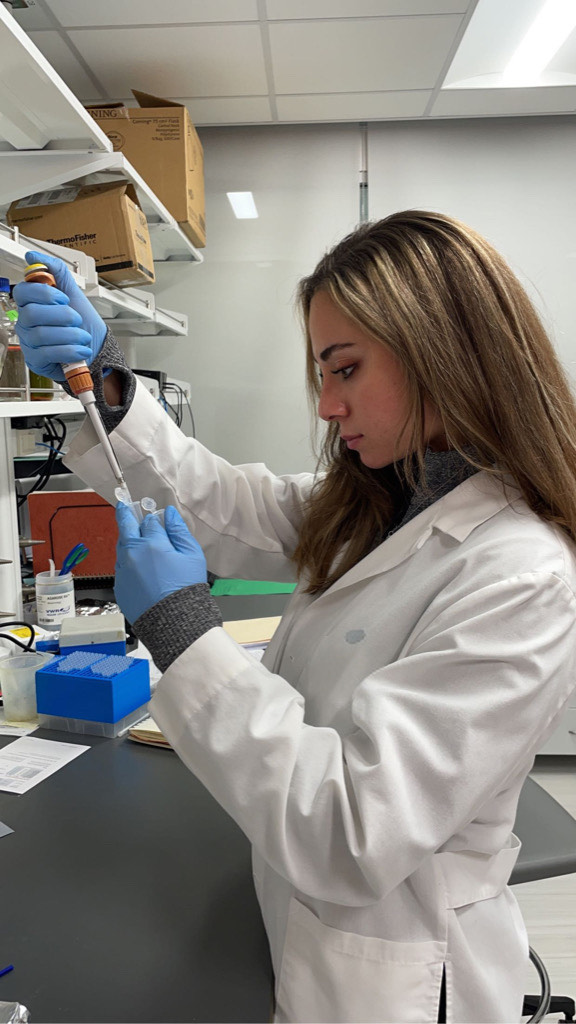Doctoral Biology student builds off of her undergraduate research at Miami to expand on her genetics research
Nour Sayed’s research aims to advance gene therapy solutions to human eye diseases.

Doctoral Biology student builds off of her undergraduate research at Miami to expand on her genetics research
What started as a love for biology in a high school classroom in Mason, Ohio has led Nour Sayed to pursue her doctorate at Miami. Sayed graduated with a BA in Biology from Miami last August, but before completing her undergraduate studies, she was already taking advantage of opportunities to work on genetic and developmental biology research projects.
At the start of her final semester as an undergraduate, Sayed joined professor of Biology Michael Robinson’s research lab and was given a choice of several projects to work on. One of her inspirations came from BIO 549, a cancer biology class taught by professor of biology Katia Del Rio-Tsonis.
“Dr. Robinson loves to stay hands-on with every undergrad that he accepts,” Sayed said. “When he accepted me, I was still technically an undergrad, but I already asked him if he would take me as a grad student, because I love the research so much.”

Sayed’s project is focused on a transcription factor found in the eye lens of both mice and humans called FOXE3. Transcription factors are proteins that regulate gene expression by binding to specific DNA sequences, influencing the initiation or inhibition of how DNA sequences create mRNA, an intermediate between DNA and protein.
In other words, Sayed explained that transcription factors are the regulators of cell fate, determining their unique identity. While all cells have the same DNA, transcription factors ensure that each cell type produces a unique set of proteins specific for that cell type.
“Uncovering the true function of this transcription factor is the main goal, including the mechanisms of how it functions,” Sayed said. “We look at what it binds with, its DNA, and the changes in the DNA expression or gene expression throughout these different developmental stages.”
Sayed seeks to assess the importance of the FOXE3 gene in normal eye development. The mice in the research study have FOXE3 mutations, which often create conditions like very small eyes (microphthalmia) – thus disrupting lens development and leading to blindness.
“This allows us to conclude that the gene is important for healthy eye development,” Sayed said.
As part of her research process, she has learned how to handle animal subjects, spend hours immersed in lab, discuss data with other student researchers, and further her education through seminars.
In addition to Robinson, Sayed also receives collaborative work and counsel from Del Rio-Tsonis and other biology faculty, including Paul James and Tim Wilson. All of them have contributed to Sayed's academic growth by encouraging her curiosity and guiding her through questions.
Sayed’s research will be useful in advancing gene therapy solutions to human eye diseases. Due to the genetic similarity between mice and humans, there are medical-based benefits that not only can contribute to the general scientific knowledge pool but also translate well between the two species.
“Whenever we find out what these genes do and how they work, we always open up more ideas and the potential for gene-based therapies like curing microphthalmia or cataracts,” Sayed said.
Reflecting on her research journey from the undergraduate to doctoral level, she acknowledges the challenges of scientific research.
“One thing I learned very quickly and I tell my undergrads is that a negative result is still a result,” she said. “So even though you didn't find out what you thought you would, it now basically excludes this as a possibility.”
Sayed presented her undergraduate research at Miami’s Undergraduate Summer Scholarship showcase last year. Many more student projects will be demonstrated at this year’s 30th Undergraduate Research Forum on April 26, and students can register until March 4.